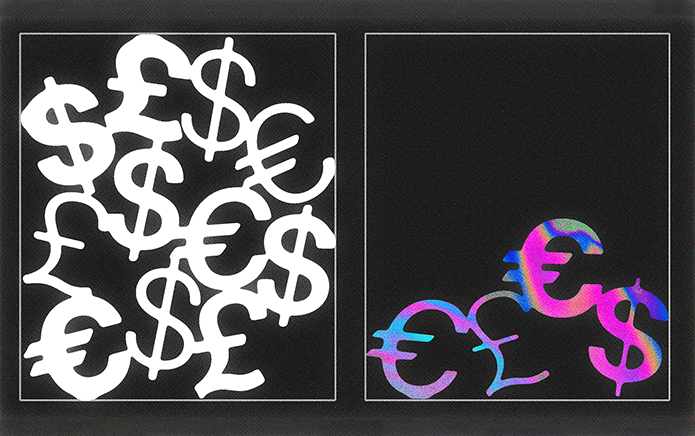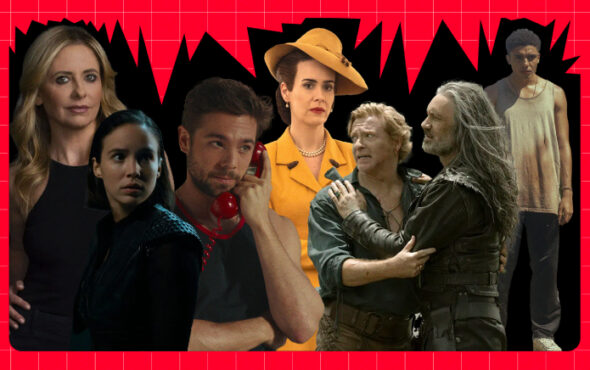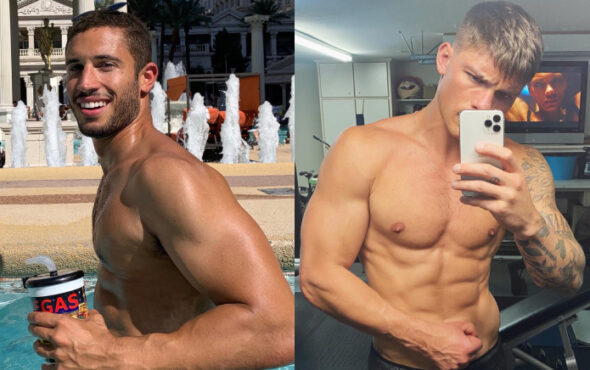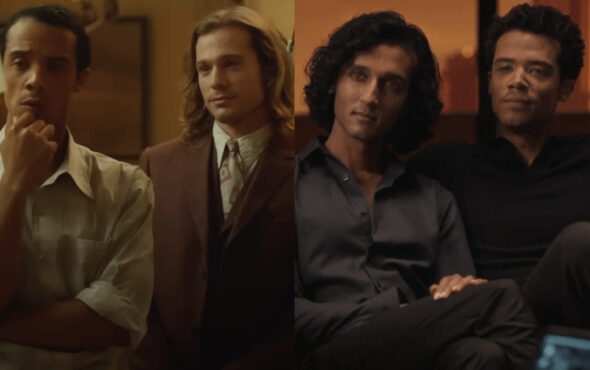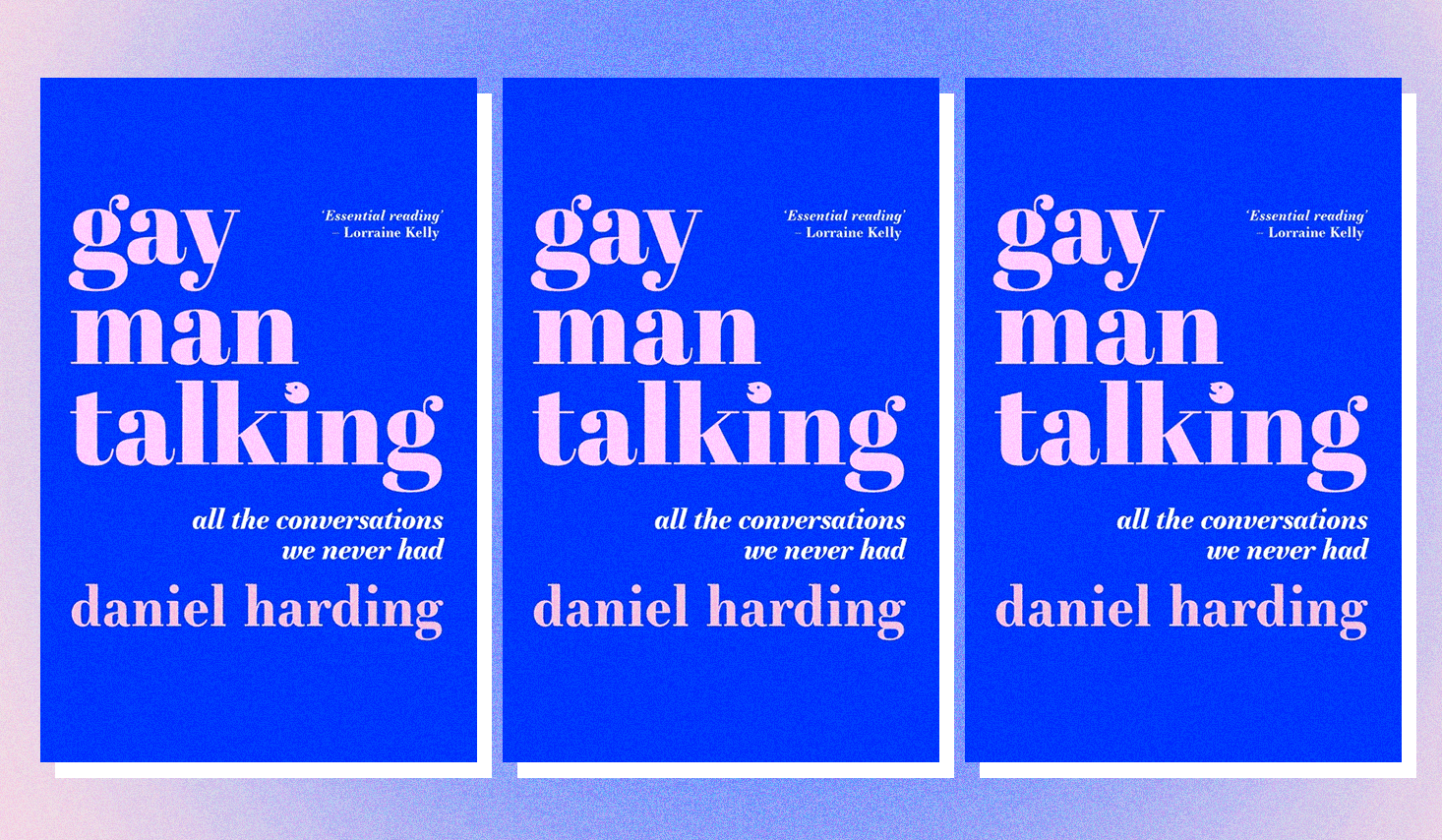
Daniel Harding has been having difficult conversations. From discussing his identity with friends to reliving his experience of coming out as gay, Harding has thought about it all. So, what was the purpose of these conversations? Well, as Harding puts it, it’s to make LGBTQ+ people, and allies, feel less alone.
Set among Harding’s hopeful intentions, the journalist-turned-author has chosen to share anecdotes of growing up in the shadows of stereotypes, the pressures of gay culture, and his evolving sense of self. Gay Man Talking journeys through chapters dedicated to parents, friends and more.
Now, after the success of his debut book, Harding is taking some time to reflect on how Gay Man Talking has fared and how far he’s come. “Do you know what, it’s been such a whirlwind! I’m sort of used to a bit of buzz and working non-stop, but [Gay Man Talking] has been so well received”, he shares. Plenty of biographical books cycle through trauma, but Harding is looking to do something different; he wants to unite a community.
As Harding puts it, “the amazing people that have reached out and actually read it and fed back and shared their stories or how it’s helped or changed their conversations,” he shares. “It’s been so good – I couldn’t actually have hoped for a better response.”
With Harding’s book in mind, we lined up a conversation with the author to chat about Gay Man Talking and how openness can redefine relationships.
What has it been like to switch from a career in broadcast journalism to life as an author?
That’s a really interesting question. As a journalist, you put so much into facts and you’re often reporting on subjects or news about other people. But, to flip that and then do a whole book which takes a lot from my personal experience, has been a completely different experience. I don’t think I was ever fully prepared for how much of myself is now out there.
A lot of people have said that they feel like they’ve read my diary and I think that’s a really great way of describing it. As a journalist, a lot of the time you’re reporting an angle and trying to give a fair representation and a lot of my book shares that, but there’s a lot of intimate details and personal stuff that are now for the world to see.
A lot of this book centres on big questions. How do you feel since having written this book?
The whole process was cathartic. It was very much a journey that I went on. I never knew the book that I created would be the book that sort of has come out. In my head, I had how these conversations would go and how I would write about them but that changed with each discussion. Each one shared something new. I never knew how my parents had felt, how my sister had felt, or my friends. I thought I had an idea but it moved me, changed me and made me more accepting of who I am. Since being published, it has allowed me to facilitate far more conversations with different people in my life and that is because I’ve opened the narrative to have these discussions.
What was the moment that inspired the direction of Gay Man Talking?
I’m very well accepted by my family, and friends so opening up that box and sort of talking about it again can have negative outcomes, so I was a little bit nervous. I did a feature for Cosmopolitan around the stigma of being the “gay best friend” and it brought back so many memories from my childhood, because I absolutely hated the phrase “gay best friend”. It can be quite internally toxic for a person and I got chatting to a publisher. There are so many conversations that I feel that we don’t have because we’re scared of reopening wounds or not understanding and that sparked the book.
What’s the biggest lesson you’ve taken from this book?
The biggest thing that I learned from the book is that I had judged during a time when I didn’t want to be judged for being a gay man. I had judged other people and their reactions without asking how they feel or, perhaps, what they might be thinking or going through themselves. I learned, from Gay Man Talking, that we are so quick to judge and we forget, even in our quest to find acceptance, that other people are going through their own things.
So, you sought out the value and lessons from those conversations?
I’ve been inspired by reading in the past and seeing people put themselves in these awkward positions and it inspires you to do it yourself. I had an opportunity to make people feel seen and have a bit of reassurance. I thought if I could help one person, or inspire one person to have a conversation, that’s what I would want. I felt so often that I didn’t have representation, or I didn’t know where to look. It was really important to write this book so that hopefully it connects or resonates with someone who perhaps is going through something and they need that hope.
And, in that representation, your title is very to the point…
That’s such a fascinating question because so often I was I deliberated over the title and the fact it’s very there on the front cover. I was adamant about having these conversations and putting them out in the open was important, and trying to break my own fear. I’m that person scared to sort of hold hands or read queer fiction out of the house. It was important for me not to be scared and to put something on the cover that’s direct, but also says what it does on the tin.
I’m still scared in different scenarios. I perhaps wouldn’t take this book out in certain situations and I think that’s a survival feeling. The best thing I can say is that you have to judge a scenario and hope that you’re accepted n it. The more we normalise seeing someone with a queer book or a title with the term ‘gay’ in it, we’re just normalising the community.
How have your relationships changed since the release of Gay Man Talking?
The majority of them have changed for the better. A lot of my friends have read the book (and the friends chapter) and apologised which I did never want from them. I’ve explained to them that it was never about what they did was wrong, it was about my internal feelings. I hope that it encourages other people to just check themselves and be and ask their friends whether something makes them uncomfortable or not. It’s just made us all more aware and have more conversations and be more honest. Since coming out, I’ve not been so honest with the people around me. I put up a front because I felt like I had to. With these conversations, you can be yourself and it’s a breath of fresh air.
We can all empathise with moments about identity. Your book is called ‘Gay Man Talking’. What would you say to readers interested in this book who fall outside of that demographic?
It’s such an interesting one because I know it says ‘Gay Man Talking’ on the front cover, and it seems very much directed to gay men. However, a lot of people within the community and outside have read this book and found relatability in different moments whether that’s coming out, talking to their parents about coming out, finding role models or finding your own people who are like-minded. I wrote this book hoping that it would touch allies and LGBTQ+ people. These conversations aren’t just about encouraging gay men to have these conversations, they’re for anyone in our community and anyone who’s an ally to our community.
Gay Man Talking is out now and available to buy here.
